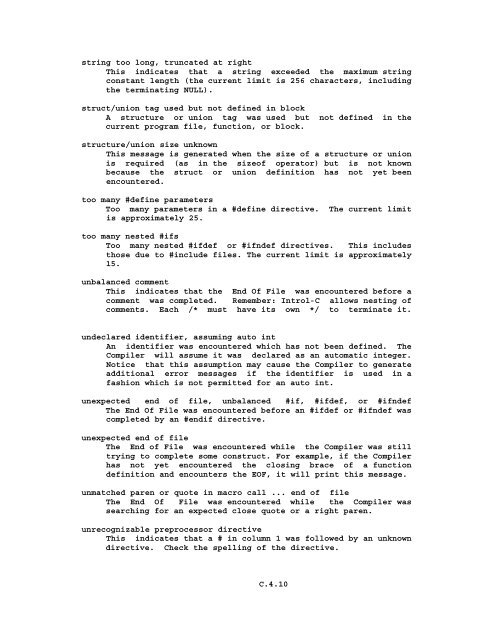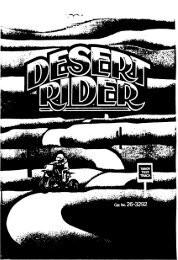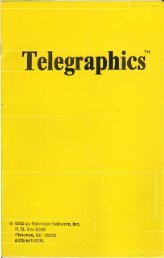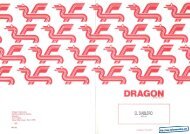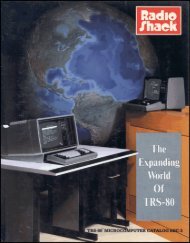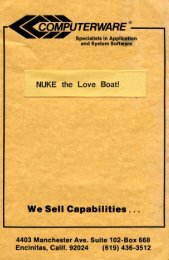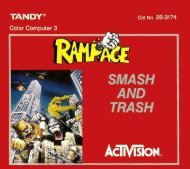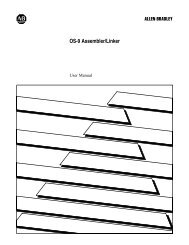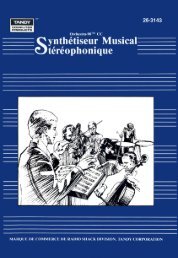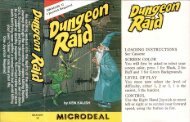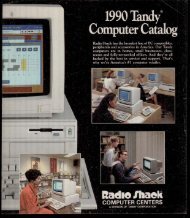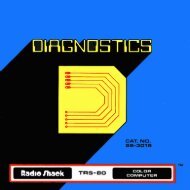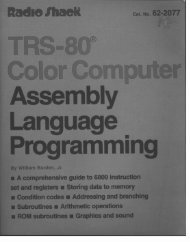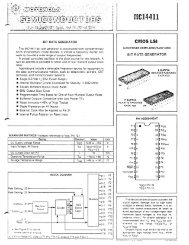INTROL-C COMPILER REFERENCE MANUAL
INTROL-C COMPILER REFERENCE MANUAL
INTROL-C COMPILER REFERENCE MANUAL
Create successful ePaper yourself
Turn your PDF publications into a flip-book with our unique Google optimized e-Paper software.
string too long, truncated at right<br />
This indicates that a string exceeded the maximum string<br />
constant length (the current limit is 256 characters, including<br />
the terminating NULL).<br />
struct/union tag used but not defined in block<br />
A structure or union tag was used but not defined in the<br />
current program file, function, or block.<br />
structure/union size unknown<br />
This message is generated when the size of a structure or union<br />
is required (as in the sizeof operator) but is not known<br />
because the struct or union definition has not yet been<br />
encountered.<br />
too many #define parameters<br />
Too many parameters in a #define directive. The current limit<br />
is approximately 25.<br />
too many nested #ifs<br />
Too many nested #ifdef or #ifndef directives. This includes<br />
those due to #include files. The current limit is approximately<br />
15.<br />
unbalanced comment<br />
This indicates that the End Of File was encountered before a<br />
comment was completed. Remember: Introl-C allows nesting of<br />
comments. Each /* must have its own */ to terminate it.<br />
undeclared identifier, assuming auto int<br />
An identifier was encountered which has not been defined. The<br />
Compiler will assume it was declared as an automatic integer.<br />
Notice that this assumption may cause the Compiler to generate<br />
additional error messages if the identifier is used in a<br />
fashion which is not permitted for an auto int.<br />
unexpected end of file, unbalanced #if, #ifdef, or #ifndef<br />
The End Of File was encountered before an #ifdef or #ifndef was<br />
completed by an #endif directive.<br />
unexpected end of file<br />
The End of File was encountered while the Compiler was still<br />
trying to complete some construct. For example, if the Compiler<br />
has not yet encountered the closing brace of a function<br />
definition and encounters the EOF, it will print this message.<br />
unmatched paren or quote in macro call ... end of file<br />
The End Of File was encountered while the Compiler was<br />
searching for an expected close quote or a right paren.<br />
unrecognizable preprocessor directive<br />
This indicates that a # in column 1 was followed by an unknown<br />
directive. Check the spelling of the directive.<br />
C.4.10


